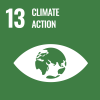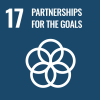The town of Cox’s Bazar in southeastern Bangladesh struggles to provide reliable power to its residents and more than 900,000 Rohingya refugees hosted in informal camps and spontaneous settlements.
To improve the living conditions of the affected population and its environmental performance, the International Organization for Migration (IOM) has been looking at alternative power sources to address the electricity needs in the camps.
IOM teams in Cox’s Bazar are implementing a sustainable approach to generating energy as part of the Organization’s Environmental Policy, which seeks to align IOM’s activities with global environmental standards and improve environmental sustainability, resource efficiency and quality management.
Field teams are harnessing solar energy to power its facilities inside and outside the Rohingya refugee camps, addressing the urgent Health and Water, Sanitation and Hygiene (WASH) needs of host communities and refugees.
Prior to installing the solar panels, IOM health facilities often experienced power outages, forcing staff to depend on noisy, polluting generators. When those were inadequate, refugees and staff were only able to carry out their tasks during daylight hours.
Today, 27 IOM facilities in Cox’s Bazar are equipped with solar photovoltaic (PV) systems with various degrees of power capacity ranging from 1 kilowatt peak (kWp) to 60 kWp, including health facilities, Women and Girls Safe Spaces, distribution points, offices, and water supply networks.


Thanks to its solar power system, the water supply network in Camp 12 can provide water to over 30,000 refugees. Photo: IOM/Mashrif Abdullah Al
Between July and October 2020, four Primary Health Care Centres (PHCC) in several Rohingya camps were equipped with solar power systems providing between 52 and 60 kWp. Previously, roughly USD 200 daily was needed to fuel the diesel generators that provided power to two health centres. Now each centre is self-sufficient and has battery banks which provide eight hours of back-up power. These 24/7 health facilities provide vital medical services to the refugee community, including outpatient and inpatient consultations, sexual and reproductive health services, 24-hour ambulances, Mental Health and Psychosocial Support, Gender-based Violence services, laboratory facilities and COVID-19 support.
Having a reliable power source has been particularly important during the hot season.
“The generator didn’t produce enough energy, so the temperature remained high inside the facility,” observed Dr. Ashrafuzzaman Shaheen, Health Facility In-charge at IOM’s PHCC in Camp 3. “Now we have uninterrupted electricity so we can use fans and other electronics more efficiently.”
The quality of services provided to the refugees improved as the power supply became more reliable, he said.
“Thanks to the electric motor pump connected to the solar panels, we can now pump water from the ground,” said Dr Shaheen. “This has drastically enhanced our water supply and sanitation needs, particularly important during the COVID-19 pandemic.”
With the installation of the new solar panels, the shortcomings of using a generator were also eliminated, improving the patient recovery process, the doctor noted; “It's not appropriate for patients recovering from complicated illnesses to be exposed to the generator’s constant buzzing or the smoke produced by burning fossil fuel.”
The plastic recycling plant close to Leda Camp is repurposing waste into alphabet blocks and blackboards for children. Photo: IOM/Mashrif Abdullah Al
IOM’s health facility in Camp 9 – one of the four centres benefitting from full solar power systems – was obliterated in the fire that ravaged the camps on March 22. The facility served more than 55,000 people in 2020 alone and its loss further complicates the challenge of responding to COVID-19.
IOM teams are installing new solar panels to address current energy needs and plan to install solar power systems in 100 community clinics in Cox’s Bazar District, including the District Sadar Hospital – one of the district’s key health facilities.
These upgrades drastically reduce the use of fossil fuel, maintenance needs and funds, and considerably minimize the carbon footprint of IOM’s operations. The CO2 emission can be reduced by 663.71kg to 995.57kg per day thanks to the solar panels installed in the four health facilities.
To improve the camp’s living conditions, hygiene and sanitation, IOM and its partner Dushtha Shasthya Kendra (DSK) have operated a plastic recycling plant in proximity to the Leda Camp - the first of its kind in the area since April 2019. Roughly 25 kg of plastic are processed each day from an area that serves around 11,000 persons.
IOM recently conducted a feasibility study to determine how to improve and expand its services; a 30 kWp solar power system will soon be installed.


IOM teams plan to install solar panels in the new health centre being built in Camp 9, which is currently operating from a temporary tent. Photo: IOM/Mashrif Abdullah Al
To sustainably meet the growing water supply needs, the water supply network in Camp 12 was designed to be powered by a 60 kWp solar power system, which reduces the use of fossil fuel by between 94.5 litres and 126 litres daily. The network addresses the main water needs of the community and the health threat that poor sanitation and hygiene pose, creating dignified living conditions for the refugees.
“Previously, we didn’t have access to clean water so we couldn’t give our children a bath,” said Mahmuda, one of the 30,000 refugees benefitting from the water supply network. “They frequently suffered from diseases. After installing the network, our children got rid of diseases. They are healthy now and so are we. All due to taps with clean running water in our community.”
As part of IOM’s renovation works, 18 cyclone shelters in Ukhiya and Teknaf Upazilas (sub-districts) will also be fitted with solar power systems. Pending feasibility and funding availability, IOM is planning to upgrade the solar capacities of several other facilities.
“By actively engaging in the decarbonization process, IOM is committed to safeguarding the successful implementation of efficient energy management solutions and restoring the ecosystem,” said Manuel Marques Pereira, IOM Deputy Chief of Mission in Bangladesh. “These will help facilities and staff to transition to cleaner fuel sources while ensuring a better and more sustainable future for refugees and the communities that host them.”
The implementation of solar power systems in Cox’s Bazar is possible thanks to the support of the United Kingdom’s Foreign, Commonwealth and Development Office (FCDO), the Swedish International Development Cooperation Agency (SIDA), the U.S. State Department’s Bureau of Population, Refugees, and Migration (PRM), the European Civil Protection and Humanitarian Aid Operations (ECHO), and the Japan International Cooperation Agency (JICA).
For more information, please contact Monica Chiriac, Tel: +880 1880 094 048, Email: mchiriac@iom.int.
Help IOM continue to provide assistance to migrants, refugees and host communities for a sustainable future, and increase their resilience to future disasters.


